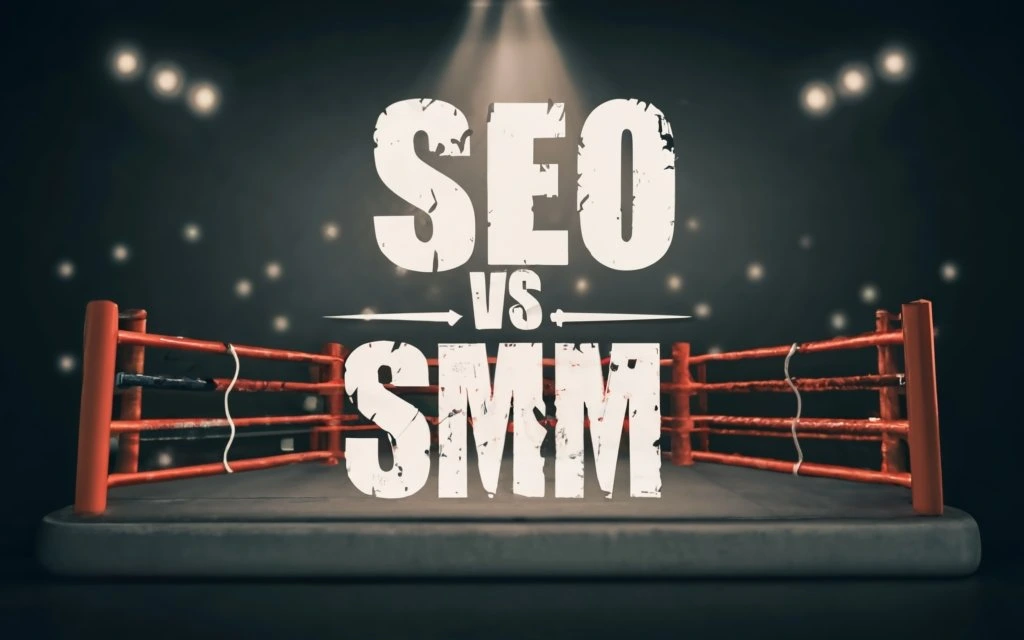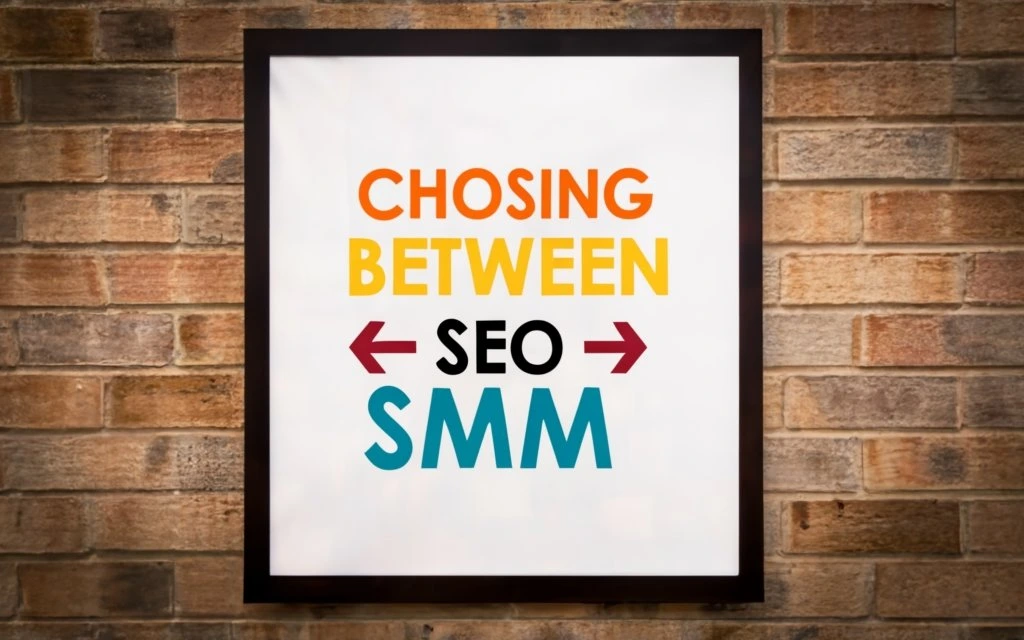In the digital marketing realm, two prominent domains continually draw attention: Search Engine Optimization (SEO) and Social Media Marketing (SMM). Both disciplines wield significant influence in the online landscape, but they possess distinct characteristics, making them appealing to different individuals based on their interests, skill sets, and career aspirations.
Also Read: – https://digiadi.com/is-seo-enough-to-rank-website/
Introduction to SEO and SMM
SEO involves strategies and techniques to optimize websites for better visibility and ranking on search engine results pages (SERPs). On the other hand, SMM focuses on utilizing social media platforms to connect with audiences, increase brand awareness, and drive engagement.
Comparison of SEO and SMM

Differences between SEO and SMM are evident. SEO primarily revolves around optimizing content, keyword research, and backlinking strategies to improve organic search rankings. Social Media Marketing, however, emphasizes creating engaging content, fostering communities, and leveraging paid advertising on social platforms.
While SEO targets search engine algorithms, Social Media Marketing emphasizes human interaction and engagement through social channels.
Learning SEO: Advantages and Disadvantages

Search Engine Optimization (SEO) is a fundamental aspect of digital marketing, offering various advantages and also presenting certain challenges and disadvantages.
Advantages of SEO:
Increased Visibility and Traffic: Effective SEO strategies improve a website’s visibility in search engine results pages (SERPs), leading to more organic traffic.
Cost-Effectiveness: Compared to paid advertising, SEO is relatively cost-effective in the long run, providing sustainable traffic without continual investment in ads.
Targeted Audience Reach: SEO allows targeting specific audiences based on keywords, enhancing the relevance of content for users actively seeking related information.
Credibility and Trust: High search engine rankings often convey credibility and trustworthiness to users, potentially boosting a website’s authority in its niche.
Enhanced User Experience: SEO involves optimizing websites for better user experience, including faster load times, mobile responsiveness, and easy navigation.
Disadvantages of SEO:
Time-Consuming Results: Achieving significant results through SEO can take time, requiring consistent effort and patience, especially for newer websites.
Algorithm Changes: Search engine algorithms frequently update, causing shifts in rankings. Keeping up with these changes and adjusting strategies accordingly is essential.
Competition and Saturation: Highly competitive industries or saturated markets make it challenging to rank for certain keywords, demanding more comprehensive and innovative SEO approaches.
Technical Expertise Needed: SEO often requires technical knowledge of website structure, coding, and analytics tools, which might pose challenges for beginners or non-technical individuals.
Risk of Penalties: Overaggressive SEO tactics, such as keyword stuffing or acquiring low-quality backlinks, can lead to penalties from search engines, adversely affecting rankings.
Learning SMM: Advantages and Disadvantages

Social Media Marketing has emerged as a powerful tool in the digital marketing landscape, offering several advantages along with specific challenges.
Advantages of SMM:
Wider Reach and Audience Engagement: Social Media Marketing allows businesses to reach a vast audience across various social media platforms, facilitating direct engagement with users through comments, shares, and likes.
Brand Visibility and Awareness: Leveraging social media platforms enables brands to enhance visibility, create brand awareness, and establish a strong online presence, often leading to increased recognition.
Targeted Advertising: Social Media Marketing platforms offer advanced targeting options, allowing precise audience segmentation based on demographics, interests, and behaviors for more effective ad campaigns.
Real-time Interaction and Feedback: SMM enables immediate interaction with the audience, providing real-time feedback, addressing concerns, and fostering a sense of community around the brand.
Content Diversification: Various media formats on social platforms (images, videos, stories, etc.) allow for diverse and creative content strategies to engage and captivate audiences.
Disadvantages of SMM:
Time-Intensive Management: Managing multiple social media platforms and consistently creating engaging content requires significant time and resources.
Platform Algorithm Changes: Social media platforms frequently update algorithms, impacting reach and engagement. Staying abreast of these changes and adapting strategies becomes necessary.
Negative Feedback Amplification: Negative comments or feedback on social media can quickly gain traction and spread, potentially harming a brand’s reputation if not handled promptly and effectively.
ROI Measurement Challenges: Determining the return on investment (ROI) from SMM efforts can be complex, especially in attributing conversions and sales directly to social media activities.
Paid Advertising Costs: While effective, paid advertising on social media platforms can become costly, especially for smaller businesses, requiring careful budget allocation and management.
Which is More Interesting: SEO or SMM?

Determining which is more interesting to learn depends on individual preferences. SEO may appeal to those who enjoy data analysis, content optimization, and strategy implementation. Conversely, SMM might attract creative individuals keen on community building, content creation, and leveraging social platforms.
Choosing Between SEO and SMM

When choosing between SEO and SMM, considering career opportunities, personal strengths, and preferences is crucial. SEO might align better with analytical minds, while SMM could suit those inclined towards creativity and interpersonal communication.
Conclusion
while SEO offers numerous advantages such as increased visibility, targeted traffic, and cost-effectiveness, it also involves challenges like time-consuming efforts, adapting to algorithm changes, and competition. Balancing effective strategies with evolving search engine requirements is crucial for maximizing the benefits of SEO while mitigating its drawbacks.
Social Media Marketing offers substantial advantages in terms of wider audience reach, engagement, targeted advertising, and brand visibility. However, it also comes with challenges such as time-intensive management, algorithm changes, negative feedback management, difficulties in measuring ROI, and costs associated with paid advertising. Navigating these challenges while harnessing the potential of SMM is crucial for its successful implementation in marketing strategies.
In conclusion, both SEO and SMM offer unique avenues for those interested in digital marketing. The choice between the two depends on individual interests, skills, and career aspirations.
Frequently Asked Question
The duration to learn SEO varies based on several factors. Understanding the basics might take a few weeks, while mastering the intricacies could require several months or even years. Continuous learning is essential due to the dynamic nature of the field.
Absolutely. Specializing in both fields is feasible with dedication and a diverse skill set. Combining knowledge from both disciplines can offer a well-rounded approach to digital marketing.
Both SEO and SMM present promising career prospects. The choice ultimately depends on personal preferences, industry demands, and evolving market trends. Both fields are integral components of a comprehensive digital marketing strategy.
While basic coding knowledge can be advantageous, it’s not always mandatory for success in SEO or SMM. Understanding HTML and CSS might assist in certain SEO tasks, while SMM often requires content creation skills like graphic design or video editing.
Yes, a plethora of free resources exists for beginners eager to learn SEO and SMM. Online courses, blogs, tutorials, and webinars provide valuable insights and guidance for those starting their journey in these domains.
